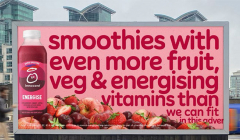
Innocent campaign is jam-packed with goodness
Neverland helps bring to life the amount of fruit, veg and vitamins in Innocent smoothies and juices

One in 10 children have a diagnosable mental health disorder according to data from the charity Young Minds. In a sector that’s underfunded, there’s an opportunity for brands to fill the gap. If done in the right way of course.

On Monday 4th February 2019 the Instagram sensation @world_record_egg finally cracked.
“Recently I’ve started to crack. The pressure of social media is getting to me,” said the egg in a TV spot that premiered on Hulu. “If you’re struggling too, talk to someone. We got this.”
Given that the record breaking egg is followed by a large number of young people, it was a pleasant surprise to see the creators use its recently acquired fame to talk about mental health, rather than opt for a commercial sell out.
With the help of Prince Harry and other famous faces, stigma surrounding mental health is gradually being eroded. Training at work is becoming more commonplace and companies are being challenged to consider the wellbeing of their customers too.
In Ireland last summer the German supermarket Lidl hosted a series of pop-ups that encouraged young people to speak openly about mental health issues. In addition to open discussions, the program included events designed to promote mental wellness, such as laughter yoga, meditation and singalong socials.
But not all brands get it right. Earlier this month Sunny D’s ‘I can’t do this any more’ tweet caused a stir for the wrong reasons. What some people read as a whimsical comment about post-Super Bowl inertia, others saw as a shout for help. The latter interpretation was nurtured by the brand as it retweeted a flurry of concerned replies. This choice to use depression as a marketing stunt seems like a new low.
One in 10 children have a diagnosable mental health disorder according to data from the charity Young Minds. In fact, half of all mental health problems manifest themselves by the age of 14. In a sector that’s underfunded, there’s an opportunity for companies to fill the gap, if done in the right way of course.
We also can’t ignore the business opportunity. Earlier this month wellness app Calm revealed it had raised $88 million in a Series B financing, valuing the company at $1 billion USD and making it the first mental health unicorn. The company’s mission ‘to make the world happier and healthier’ is resonating with people all over the globe.
As the retail landscape changes, brands are searching for new opportunities to engage with consumers and find genuine ways to make their lives better. But as with all purpose driven comms strategies, mental health needs to be part of a business transformation, not just a marketing platform.
Cheerios, the little toasted Os, is on a mission to “make the good go round.” What the cereal may lack in nutrition, it’s making up for by nourishing the minds of the children who love to eat it.
As part of the new campaign, 'Right on Tracks' they’ve released a set of music videos directed by Irish animator Johnny Kelly that tackle big topics, from standing up to bullies, to feeling like you don’t belong.
The lyrics, written by song-writer Walter Martin, are intended to spark conversations between parents and their children about empathy, compassion and inclusion. The first track, It’s All Family, explores different family dynamics, from single sex parents to adoption. Sit With Someone New encourages kids to makes others feel welcome. Just Be You instils kids with the confidence to be themselves and Step Up is a tool kit for standing up to bullies.
The wooden puppet characters, created by Isle of Dogs puppet master Andy Gent, were based on illustrations by design collective Nous Vous. Each scene is an animated real life situation that American kids can relate to.
These music videos are part of Cheerios overarching #GoodGoesRound strategy. By working with different artists and charities they’re fulfilling their brand value that ‘when you eat good food, you feel good, you do good things, and it all comes back round.’
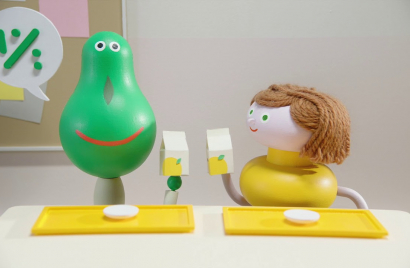
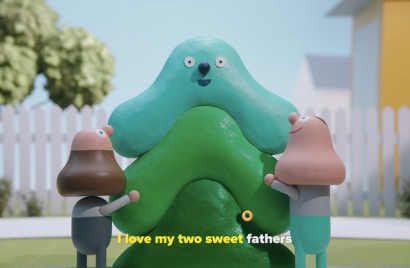
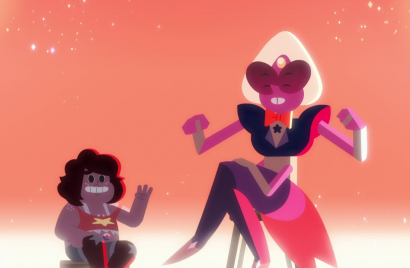
In April, Dove decided to take its self-esteem education directly to young people through a new two-year global partnership with Cartoon Network’s Steven Universe, a half-human, half-gem cartoon hero with magical powers. The idea is to educate young people about body confidence through the cartoon’s themes of inclusivity and empowerment. The campaign also includes a fun online personality quiz and additional resources under the umbrella of the project, including an ebook to be released at a later date.
The Victoria and Albert Museum, Dundee, has commissioned its first online video game, which will be based on the concept of empathy. The game explores the ideas of self and character development. Players will be able to design their own animated character and interact with it in a variety of ways, before it eventually fades away after a series of play-dates, each lasting a few minutes. There is no violence in this game, only kindness.
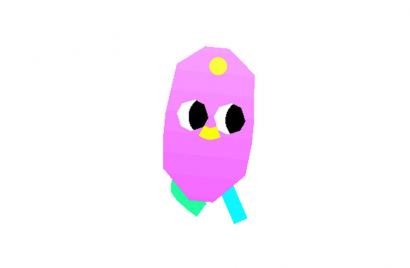
Looks like you need to create a Creativebrief account to perform this action.
Create account Sign inLooks like you need to create a Creativebrief account to perform this action.
Create account Sign in